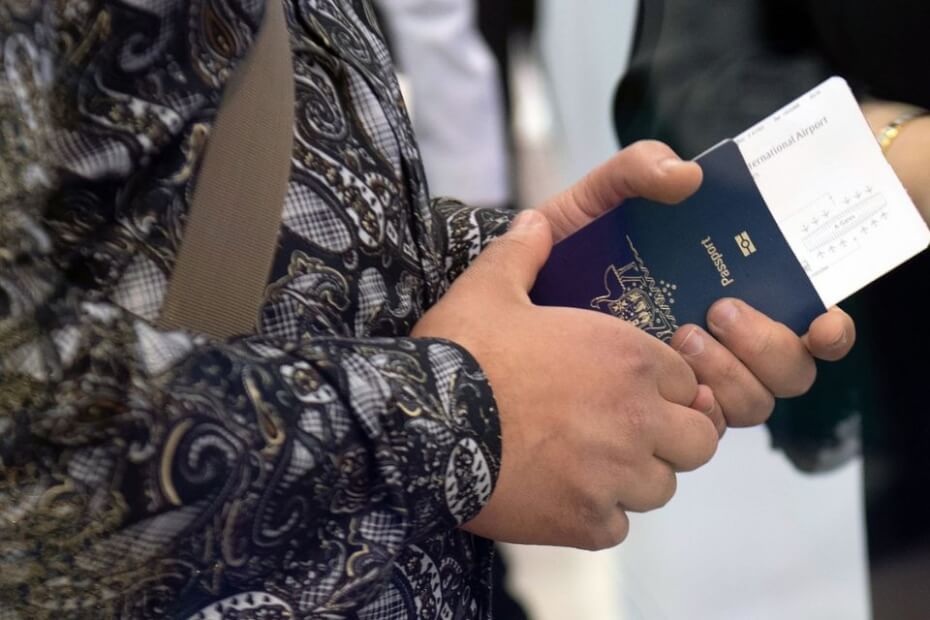
The former Independent Chief Inspector of Borders and Immigration (ICIBI) says the success of the new Electronic Travel Authorization (ETA) largely depends on the UK Border Force.
In a meeting with the House of Lords Committee of Justice and Home Affairs on 19 March 2024, David Neal said the ETA could make the UK safer.
“Absolutely it could. It removes human error, for example, which is one of the biggest discrepancies, so that has to be a positive thing,” he said.
The former immigration watchdog added that in the 2025 UK border strategy, the ETA paints a digital and automated future of travel.
However, Neal said the British government needs to “strengthen the people line in the organization that is supporting the technology.”
Based on his reports, the UK Border Force might be “not necessarily equipped to provide the digital answer to mitigate some of the risks.”
He stressed, “If the people mitigations are not in place, the border will always be vulnerable.”
Neal said personnel management and leadership are critical to the ETA and effectively help secure UK borders.
Border Force should understand the technology
Alexander Downer, chairman of Policy Exchange and former Minister for Foreign Affairs for Australia, shared a similar take.
In a separate meeting with the committee on 12 March 2024, Downer stated that facilitating people and goods in and out of the UK is crucial.
“I definitely think that the use of technology and the efficient and rapid uptake of technology by Border Force is the future,” said the author of a 2022 Independent Review of Border Force.
He pointed out that the Border Force does not develop the technology; it only purchases and uses technology.
However, Downer said, “Border Force officers will have to understand the technology.”
“They will have to know how that all works and what to do if it stops working,” he said of digital technologies like facial recognition.
With the ETA, he said, “You might not need so many Border Force officers, but they will need to be more technologically and digitally skilled.”
Downer also noted staffing and procurement issues at the Home Office, which oversees the Border Force.
He said the Home Office must also be “technology friendly and willing to adopt new technology.”
The Policy Exchange chair acknowledged that technology has risks.
However, it can take time, and if it works, people and goods will enter the UK “more quickly, saving a lot of money and anxiety.”
Allegations of Border Force inefficiencies
A few months ago, Neal was fired for releasing his unpublished reports without the Home Office’s approval.
In his reports, he pointed out the UK Border Force’s inadequate screening of passengers on business jets at London City Airport.
The former ICIBI also highlighted distractions and stress among border officials and the inconsistent deployment of Border Force resources in other airports.
Neal noted the lack of communication equipment for border officials operating electronic passport gates (eGates), leading to unmanned border posts.
His allegations have raised concerns about the effectiveness of the UK’s security measures at airports and other entry points.
The Home Office responded in a statement that Neal’s report is “incorrect in its conclusion that there is a significant risk to security.”
It also added that remedial action had been taken to ensure the correct processes and record-keeping were followed.
Furthermore, the Home Office provided a list of ongoing activities addressing threats from general aviation or non-commercial flights.
This includes reducing airfields, developing a digital service for general aviation report (GAR) and advance passenger information (API) submissions, and providing training packages for frontline staff.
The Border Force had urged aircraft and fixed-based operators to prepare to comply with the new ETA scheme.
Home Office experienced database issues
Downer also mentioned the risk of relying on other countries’ databases to screen its citizens coming to the UK.
An example of the risks may be similar to the one the Home Office faces now.
More than 76,000 individuals had incorrect details in the Home Office immigration database, showing mixed-up or merged data in the database.
This database, known as the Person Centric Data Platform (PCDP), stores information for 177 million people.
The PCDP tracks a migrant’s history with UK immigration systems, including visa applications and biometric data.
Its records are used in the Atlas system, accessed by caseworkers, Border Force officials, and other online systems to demonstrate immigration status.
Errors in the database system can lead to problems proving rights to work, rent housing, or access free NHS treatment.
The Information Commissioner’s Office is investigating possible data breaches.

